In a world filled with alternatives, one more seductive than the next, Grassroutes offers urban India a taste of rural living.
Half a century after the green revolution hit India, our agricultural practices are still subject to the whims of the weather; our farmlands have been split and re-split into acres too meager to afford a profitable profession; in between sowing and harvest seasons you’ll find farmers toiling a long way from their homes on the railroads or at construction sites or at any other form of work that the cities deem fit for them; and the newspaper headlines screaming, “57 farmers hang themselves!,” are really not doing anyone any good.
While Mumbaikars were ecstatic over the scent of freshly wet mud after last year’s unexpected November rain, the farmers had lost their summer crop and with the wild weather we’ve been facing, sowing a winter crop was just gambling away more precious seed. So what can we do, you ask? Nothing! Probably something. Mumbai-based Grassroutes Pvt Ltd. is not looking at the things we can’t change. It’s looking at the things we can.
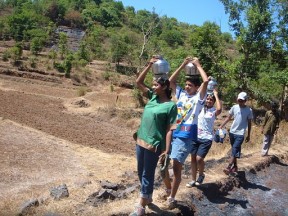 For instance, setting up an alternate source of income for farmers whose average income per annum is between Rs 9,000 – Rs 12,000. And this ‘per annum income’ – just reiterating in case you missed the significance the first time around – has none of the dependability of the monthly salary credit we city peoples are used to. That’s where Grassroutes comes in. Their Rural Tourism initiative is a product of their attempt to create a reliable and sustainable source of secondary income for the farmers that is not related to agriculture or animal husbandry. You could spend two days and night in a village milking cows, ploughing fields, getting a taste of simple home-cooked food and a whole lot more for an average per head cost of Rs 1,200 (60 per cent of this goes to the village).
For instance, setting up an alternate source of income for farmers whose average income per annum is between Rs 9,000 – Rs 12,000. And this ‘per annum income’ – just reiterating in case you missed the significance the first time around – has none of the dependability of the monthly salary credit we city peoples are used to. That’s where Grassroutes comes in. Their Rural Tourism initiative is a product of their attempt to create a reliable and sustainable source of secondary income for the farmers that is not related to agriculture or animal husbandry. You could spend two days and night in a village milking cows, ploughing fields, getting a taste of simple home-cooked food and a whole lot more for an average per head cost of Rs 1,200 (60 per cent of this goes to the village).
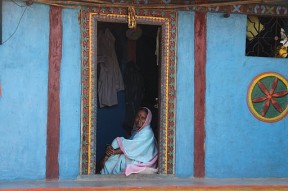 While Purushwadi, located around 1,000 feet above sea level is a great place to visit any time of the year, Grassroutes conducts journeys to highlight special events/seasons in this village. Visit during March and you could partake in the harvest of wheat and celebrate Holi the village way. The first week of June is the best time to watch a million fireflies light up the hills of the Western Ghats, while the second week of July, is the time to visit if you would like to lend a hand transplanting rice.
While Purushwadi, located around 1,000 feet above sea level is a great place to visit any time of the year, Grassroutes conducts journeys to highlight special events/seasons in this village. Visit during March and you could partake in the harvest of wheat and celebrate Holi the village way. The first week of June is the best time to watch a million fireflies light up the hills of the Western Ghats, while the second week of July, is the time to visit if you would like to lend a hand transplanting rice.
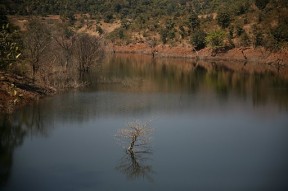 And then there’s the rice harvest, which happens around the time of Diwali in November. June and December are a good time to spend a weekend with the Warlis and get a hands-on taste of their art and culture at Walvanda, which is located about 80 km from Palghar, between the Vikramgad and Jawhar villages of Maharashtra. Grassroutes will also customize a trip to suit your needs any time of the year. But, in an attempt to preserve the sanctity of village life, it regulates the influx of city people into the village, so that at a given time, visitors are no more than 10 per cent of the population.
And then there’s the rice harvest, which happens around the time of Diwali in November. June and December are a good time to spend a weekend with the Warlis and get a hands-on taste of their art and culture at Walvanda, which is located about 80 km from Palghar, between the Vikramgad and Jawhar villages of Maharashtra. Grassroutes will also customize a trip to suit your needs any time of the year. But, in an attempt to preserve the sanctity of village life, it regulates the influx of city people into the village, so that at a given time, visitors are no more than 10 per cent of the population.
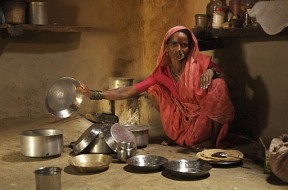 The village hospitality extends to clean living quarters and washrooms, a guide to take you around the village and more. For three years now, Grassroutes has been taking city-dwellers (B-schools, parish youth, random travelers, corporate clients et al) into Purushwadi, around 220 km from Mumbai, where 70 of the 105 families have opened up their homes and fields to the idea of rural tourism. In fact, there’s a Village Tourism Committee that decides what price the village ought to put on their hospitality and services. A part of the village income goes into a fund that can be used for non-political and non-religious village needs.
The village hospitality extends to clean living quarters and washrooms, a guide to take you around the village and more. For three years now, Grassroutes has been taking city-dwellers (B-schools, parish youth, random travelers, corporate clients et al) into Purushwadi, around 220 km from Mumbai, where 70 of the 105 families have opened up their homes and fields to the idea of rural tourism. In fact, there’s a Village Tourism Committee that decides what price the village ought to put on their hospitality and services. A part of the village income goes into a fund that can be used for non-political and non-religious village needs.
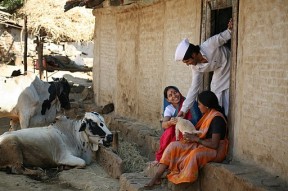 Grassroutes is not a charity, nor does it have any religious or political allegiances, but it is occasionally prone to philanthropic activity. In an attempt to encourage the children of the villages that they have adopted to study, solar lights were awarded to students who did well as part of Grassroutes ‘Light a Life’ campaign last Diwali. Which brings me to another unusual Grassroutes’ ideology… while most of the world is looking at its villagers as customers/consumers… (i.e. give them roads, give them electricity, give them satellite connectivity… for which they will eventually pay us); Grassroutes sees the villages as producers/suppliers (i.e. they offer the experience of a simple unpolluted village life, wide open spaces, a culture untouched by commercialism).
Grassroutes is not a charity, nor does it have any religious or political allegiances, but it is occasionally prone to philanthropic activity. In an attempt to encourage the children of the villages that they have adopted to study, solar lights were awarded to students who did well as part of Grassroutes ‘Light a Life’ campaign last Diwali. Which brings me to another unusual Grassroutes’ ideology… while most of the world is looking at its villagers as customers/consumers… (i.e. give them roads, give them electricity, give them satellite connectivity… for which they will eventually pay us); Grassroutes sees the villages as producers/suppliers (i.e. they offer the experience of a simple unpolluted village life, wide open spaces, a culture untouched by commercialism).
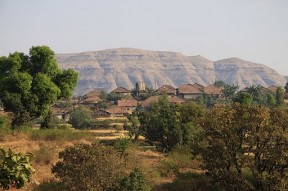 In addition to the traditional farming experience, Grassroutes is hoping to offer coastal, jungle and art/handicraft experiences by reaching out to six villages in Maharashtra by 2013, and around 200 villages across India by 2020.
In addition to the traditional farming experience, Grassroutes is hoping to offer coastal, jungle and art/handicraft experiences by reaching out to six villages in Maharashtra by 2013, and around 200 villages across India by 2020.
To know more about the chapters of this story that have not been featured here, or to be a part of Grassroutes campaign, call Darren Lobo (+91- 8108133016); John Nogueira (+91- 9769784547) or Inir Pinheiro (+91- 9969101861) or visit www.grassroutes.co.in.
Averil Nunes is a student who is currently researching truth, meaning, love, faith and beauty in the laboratory of life. Maybe one day she’ll figure it all out and write and illustrate a book about her experiments. She is also a writer, journalist and passionate cake decorator.






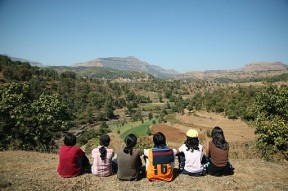
excellent story!
beautifully woven.